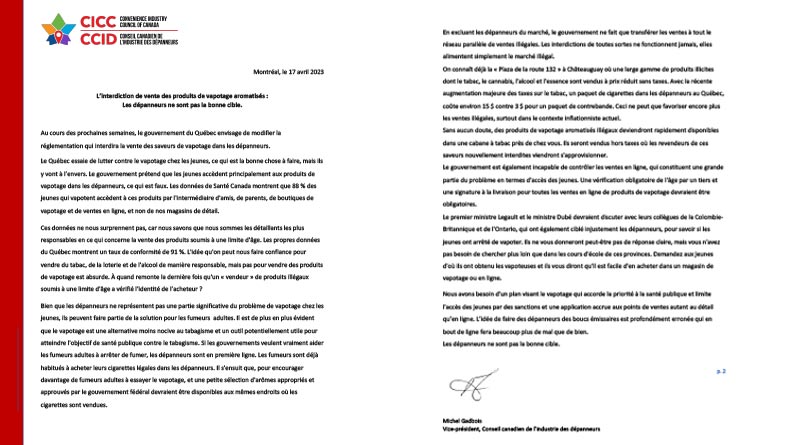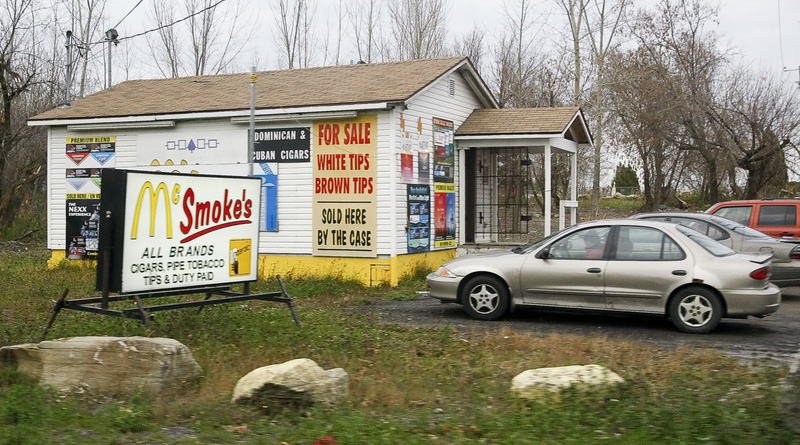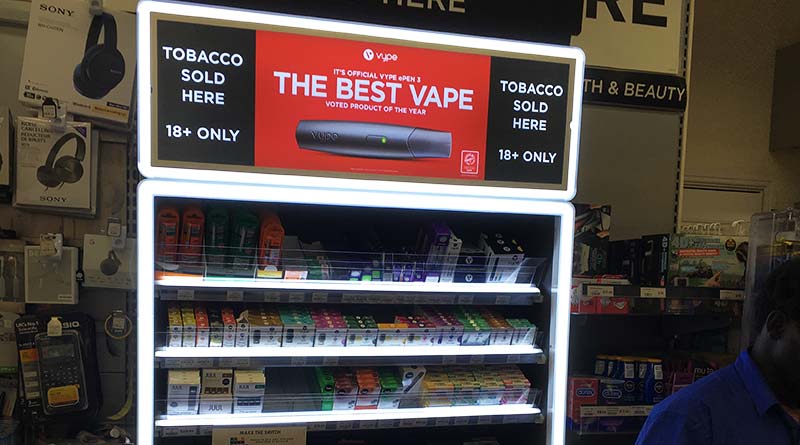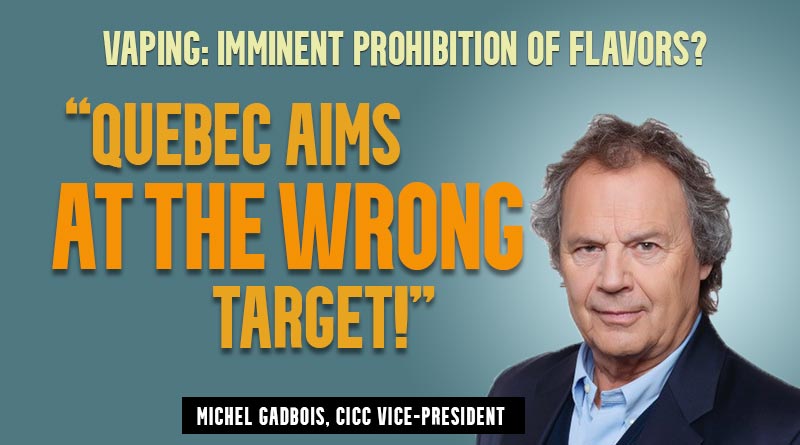VAPING: The CICC urges Quebec to keep flavors in convenience stores
According to various sources from the industry, Quebec is reportedly on the verge of banning the sale of vaping flavors across the province. The Legault government’s Cabinet Meeting has reportedly endorsed a regulatory project to this effect, which is about to come into force. In fact, it would only be a matter of weeks.
If this new development proves to be true, it would force the 8,000 convenience stores, grocery stores, tobacconists and vape shops in Quebec to cease all sales of flavored liquids, with the exception of tobacco flavor and possibly menthol.
In response to this threat, the main representative of the convenience store industry in Quebec, Michel Gadbois, has penned a letter today urging elected officials to continue allowing the sale of flavored products in convenience stores, citing, among other considerations, the industry’s exemplary and well-established compliance in preventing sales to minors.
In an op-ed letter obtained by DepQuébec (see here), the Vice President of the Convenience Industry Council of Canada (CICC) addresses François Legault and Christian Dubé, telling them that they are “aiming at the wrong target” if they intend to prohibit sales in convenience stores to protect young people.

Wrong target
Indeed, there are many arguments to justify the continued legal sale of flavors in convenience stores, according to the CICC, starting with the issue of youth access.
“We know that we are the most responsible retailers of age restricted products. Quebec’s own data shows a 91% compliance rate. The idea that we can be trusted to sell tobacco, lottery, and alcohol responsibly, but not trusted to sell vape products is nonsensical.” — CICC op-ed letter
In an interview with DepQuébec, Michel Gadbois stressed the importance of pointing out to the government that it is on the wrong track and reminding it of how responsibly retailers act to prevent such products from ending up in the hands of minors.
“Although vaping among young people is a concern, the vast majority of those who vape, more than 90%, get their supplies from places other than our stores,” said Mr. Gadbois.
The facts seem to support his claim, as the INSPQ’s website (which is the main public health research body) indicates that according to two studies, very few students (about 3%) among those who vape report getting their products from a convenience store (source: here).

Windfall for the black market
The other consideration is more pragmatic. If legal sales are banned and the demand remains what it is, sales will now come from either the black market or online commerce. In other words, two scenarios that governments are completely powerless against.
“By excluding convenience stores from the market, the government is simply transferring sales to the entire parallel network of illegal sales.” — CICC op-ed letter
Putting these products back into the hands of the black market certainly represents a form of absurdity that is difficult to understand. On the one hand, a wave of uncontrolled products will directly threaten the health of young people, and on the other hand, Ottawa and soon Quebec, which is also preparing to tax vaping, will no longer collect any taxes.
Worse, both levels of government are completely cutting themselves off from the market and will have nothing and no one left to inspect to enforce the law.

Missing opportunity for public health
The other cruel irony is, of course, to see the government removing a product that plays an extremely useful role in helping and encouraging smokers to quit.
“If governments are serious about helping adult smokers quit smoking, convenience stores are on the front lines. Smokers are already accustomed to buying their legal cigarettes at convenience stores. It follows that, to encourage more adult smokers to try vaping, vapes and a small selection of appropriate, federally approved flavors should be available at the same places where cigarettes are sold.” — CICC op-ed letter
Interestingly, the British government has just announced a program to distribute more than a million free e-cigarettes to smokers to help them quit (source: here). Meanwhile, Quebec turns a deaf ear and even manages to make these useful and valuable products even less accessible to smokers.

A man of many battles, Michel Gadbois has seen a lot of water under the bridge, having convinced both federal and provincial governments to lower tobacco taxes in 1994 to eliminate smuggling and to increase crackdowns and penalties in Quebec in 2009.
Drawing on his experience, he remains optimistic about the future: “Convenience stores have always been there to serve the community and will continue to do so. We hope that governments understand their usefulness, appreciate their contribution, and most importantly, stop putting obstacles in their way.”
Indeed, we can only hope!






